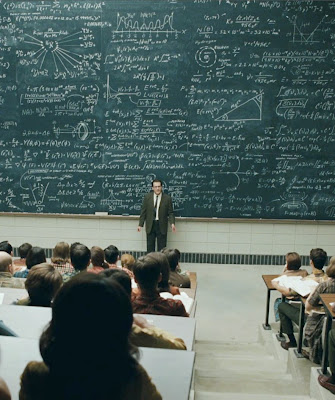 Bazerman wants to know what a text does, how it does it, and where it does it. To do so, he examines the rhetoric of genre, specifically the experimental report which has "developed as a favored solution of the problem of how to present empirical experience as more than brute fact, as a mediated statement of inquiry and knowledge" (504). That is, the experimental report has achieved institutional force because it has addressed successfully the rhetorical problems that scientists confront. However, Bazerman notes that genres are not panacea that students can follow slavishly; rather, students "must understand and rethink the rhetorical choices embedded in each generic habit to master the genre" (8). Students must understand how writing works; as Bazerman states, "Writing is choice making, the evaluation of options" (507). The more students understand, the more they will be able to control their writing and make intelligently persuasive choices. They become better writers.
Bazerman wants to know what a text does, how it does it, and where it does it. To do so, he examines the rhetoric of genre, specifically the experimental report which has "developed as a favored solution of the problem of how to present empirical experience as more than brute fact, as a mediated statement of inquiry and knowledge" (504). That is, the experimental report has achieved institutional force because it has addressed successfully the rhetorical problems that scientists confront. However, Bazerman notes that genres are not panacea that students can follow slavishly; rather, students "must understand and rethink the rhetorical choices embedded in each generic habit to master the genre" (8). Students must understand how writing works; as Bazerman states, "Writing is choice making, the evaluation of options" (507). The more students understand, the more they will be able to control their writing and make intelligently persuasive choices. They become better writers.
The problem, I think is convincing future scientists, engineers, etc. to think of themselves as writers and communicators. Ostensibly, this is why we have Writing in the Sciences. We can help them develop a praxis of rhetorical activity. As Bazerman points out in a later chapter, they do not need to know everything about rhetoric; they just need to know enough to know when they might need help with their writing.
How do we help students understand this?
ReplyDelete